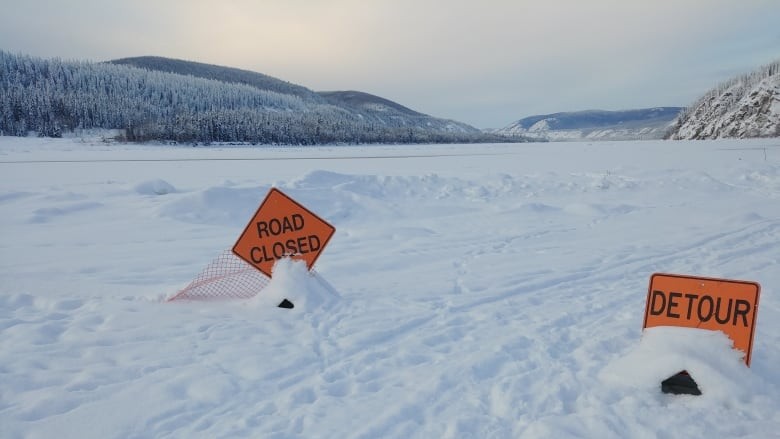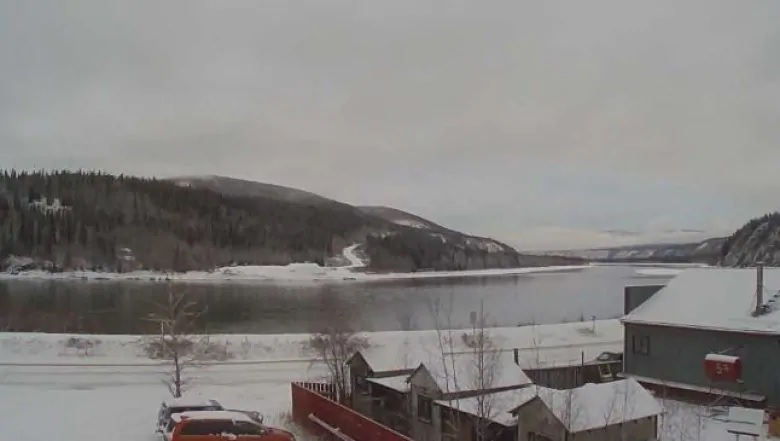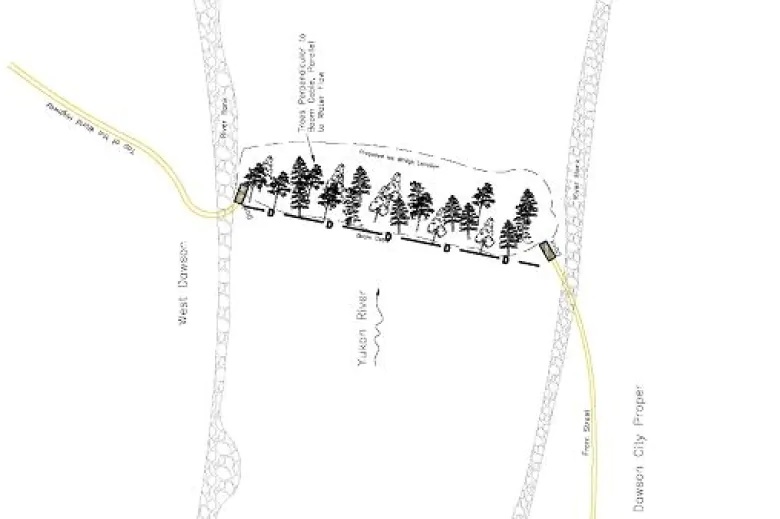Government to attempt another ice bridge at Dawson City, northwestern Canada after failing last two winters

The Yukon government, in northwestern Canada, is going to give it another shot.
Plans are being made to try again and build an ice bridge across the Yukon River at Dawson City this winter — something the government’s tried and failed to do in recent years.
For years, the river would reliably freeze over on its own. The government would then build and maintain a sanctioned road crossing, to connect West Dawson to the main town site.
That’s not happening anymore, even in the darkest depths of winter.
“In the recent past, conditions and factors have changed such that the river has not entirely frozen over at the usual location,” says the government’s newly-submitted application to the Yukon Environmental and Socio-economic Assessment Board (YESAB).
“[The government] has been challenged to find methodologies and techniques to facilitate the formation of an ice bridge at this location. To date, and for a variety of reasons, none of the techniques and strategies have had a resounding success.”

As Highways Minister Richard Mostyn memorably put it two years ago, “Mother Nature is sort of a fickle mistress.”
Ice pans and ‘vegetated booms’
This will be the third year the government may try to help things along. In a submission to the Yukon Environmental and Socio-economic Assessment Board, the government says it’s got a few strategies in mind.
Some of them have worked in the past for some creative local residents, but those makeshift crossings were never sanctioned by the government.
One idea is to cut off large ice pans upstream, and let them float down and lodge into place. Ice spray or snow-making machines would then be used “at a more enhanced level than in previous years,” the YESAB application says, to thicken the ice.

Another option is to install a floating bridge or a “vegetated boom” — for example, a steel cable line with green trees attached — across the open water to help ice form. A similar boom without trees was tried last year, but it didn’t work.
The government could also find a different spot to build its crossing, as local residents have also done in recent years. But the YESAB application says that’s complicated because of land access and private property, and unknown river conditions in different areas.
The ferry crossing “remains the safest and most familiar and practical location at which to construct the crossing,” it states.
The budget for the project has not been revealed. Last year, the government spent $150,000 before pulling the plug.
Officials will hold a technical briefing next week, to explain their plans. The YESAB application is open for public comment until Oct. 31.
Related stories from around the North:
Canada: Heavy snowfall in northwestern Canada left thousands without power, CBC News
Finland: First snow in northwest Finland no surprise to reindeer herders, Yle News
Norway: Climate change is about to divide Norway’s largest Arctic island, The Independent Barents Observer
Russia: Climate change threatens security and industry, Russian PM says, The Independent Barents Observer
Sweden: Spring in Sweden begins a week earlier than 100 years ago, scientists say, Radio Sweden
United States: Alaska Federation of Natives declares climate emergency, Alaska Public Media



